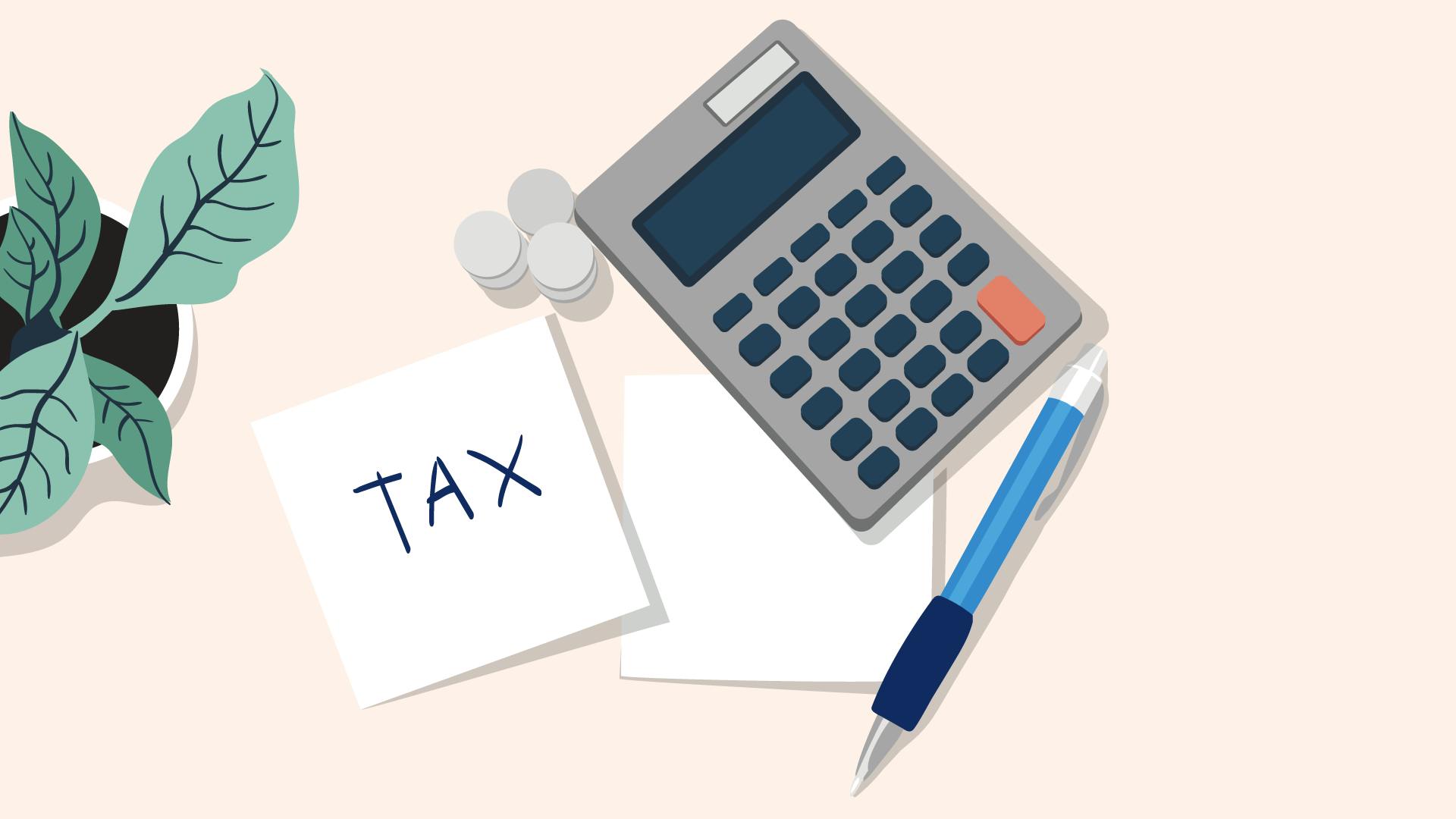Freelancers - Understanding the German Tax Year
Last updated on Jul 21, 2021
Kate Bailey
Freelance Editor
Mar 25, 2019
As sure as our own demise, there is our obligation to pay taxes. Where ever we choose to live in the Westernised world, we will have to pay taxes - this helps fund all the schools, transport, roads and government services that we use in our lives. In Germany, it is not different. In fact, here in Germany, taxes are a very serious business. Unlike the US or Australia, taxes for the self-employed require much more frequent submissions and communication with the tax office, or Finanzamt . In addition, there are likely to be more frequent payments and often, prepayments. The Finanzamt will also automatically to or transfer monies owed, again, this can differ from many expats nations freelance creatives and professionals migrate from. As daunting as it may seem it is all about knowledge and meeting deadlines - if you can be informed and follow through on your commitments - managing taxes as part of managing your business will become a force of habit. Understanding what freelancers are and how they are classified is the very first step, acquiring the appropriate work permits (visa) is the next step and planning your German tax year is the last. Today, we are going to look at the tax year and the types of tax required.
The Low-Down
In order to start dealing with taxes and beyond the basics of establishing yourself and your visa - you will need to be registered with the Finanzamt . This will provide you with your tax number - which is to be used for everything you do business wise - and you can not issue invoices or be paid for freelance work without one. We have covered off both of these topics here and here, where we also talked about the two types of ‘freelancers’ you can be, and this will impact the taxes you pay. For freelancers, or Freiberuflich, you will have registered your business though the tax office and will be sent your tax number via the mail. For Gewerbetreibende , more likely a trade profession, you register with Gewerbeamt , who will relay your application to the Finanzamt who will issue your tax number via mail.
There are three key taxes: Income Tax, VAT and Trade Tax. In addition to this, you may be required to pay social security provisions, and every person is required by law to have health insurance - for freelancers this means paying for it themselves on an annual or monthly basis. While it is not a tax, is should be factored into the fixed cost as such.

The Deadlines
The German tax and financial year follows a standard calendar year - meaning your financial year begins on January 1 and ends on December 31. Income Tax is most likely paid quarterly, in advance, based on pre-payment estimates from the Finanzamt. It can, at times, take two years to have accurate prepayment figures. VAT is most likely reported monthly, however, this can also be done on a quarterly term - either way, it too often carries pre-payment basis. Trade Tax is also paid quarterly in the same circumstances as the income tax. Then, annually, you will complete a tax assessment once the financial years closes - which reports on your entire income, taxes, deductions, expenses and revenues. The deadline for this is the 31st of May in the following financial year. Therefore, your 2017 tax assessment must be complete and submitted to the Finanzamt by May 31, 2018. Having a Steuerberater can help communicate with the Finanzamt should you be having issues, but generally, keeping to the deadlines ensures no nasty issues with the Finanzamt.
Do your thing,
not your taxes
Tax #1 - Income Tax
Income tax is applicable to both kinds of ‘freelancers’ and has a base rate of 14 percent and this can scale up to 42 percent. Generally, to stay on top of your Income Tax you will be required to pay this on a quarterly basis, in advance and you will be required to complete a tax assessment yearly. You will be taxed on your income after deductions, which is often referred to as ‘profit’ because you are seen as a business but if have gone the extra step and indeed do differentiate as a Gewerbetreibende your income and ’profit’ are seen as exclusive figures. If you are single, your ‘profits’ are taxed with a single person allowance, however, if you are married your income is taken together at double that rate. For the most current tax rates, there a multitude of income tax calculators online.
What is most important about the income tax, is that it is offset by your deductibles. Firstly, as a self-employed person you will have an allowance of EUR 2,800 for your health insurance, but it is crucial you keep all of your receipts and the relevant documentation. Secondly, depending on your profession, you may be entitled to write off expenses in a lump sum without requiring separate receipts and this can often be up to as much as 30% of the revenue. This is best to be discussed with a tax professional.
Beyond this, you can claim deductions in the form of: equipment, office and work space rents, stationary, travel, pension and insurance membership contributions and if you are a parent, great news, you can claim costs of childcare. We wrote about this in our article Keeping the Finanzamt Happy - which also covers off the importance of record keeping for your deductibles!
Tax #2 - VAT
VAT, or ‘Value Added Tax’ is a European wide tax, with different rates applicable depending on the country. It is generally known as Umsatzsteuer (USt) , but can still be called after its original name Mehrwertsteuer (MwSt) . In Germany, the rate is generally 19% but depending on the goods it can also be 7% - a highly important differentiation when you are dealing with food goods, as an example. Generally, ‘necessities’ will fall into the 7% category. You are liable to register into the VAT system if your income exceeds EUR 17,500. In this case it does not, you will need to list yourself as exempt for VAT on your invoices. If you do qualify to pay VAT each month, as you record your expenses, you will be required to complete a summary of your VAT purchases. Here, you will report how much VAT you personally paid in expenses or to suppliers and how much was paid to you. The balance of which is either owed by your to the Finanzamt, or perhaps you have overpaid. Reporting occurs via the ELSTER portal and this can be done by yourself or your tax agent. It must be submitted by the 10th of the following month, so your June VAT declaration must be complete by July 10.
Tax #3 - Trade Tax
You may be a commercially registered business - depending on your profession. In this case, you will be liable for a municipality determined trade tax. This can range from 7% and up to 17.5% and is pre-determined for prepayment on a quarterly basis with the final assessment to be completed at the end of the financial year with your annual declaration or Steuererklärung . In the event your income does not exceed EUR 24,500 you will not be liable for this tax.
Beyond this, there are of course social insurance taxes that may be applicable to you. You should receive this information if you register for speciality professions, but be sure to fire a letter to the Finanzamt to explain your situation and verify. A tax agent can be very useful here, and we will be sure to write an article about this in the future.

Related articles
Freelancers - What Hourly Rate Should You Charge?
There are a lot of assumptions about Freelancers and self-employed people. Some are true - yes the freedom to make the schedule and ‘’choose’’ your clients is great. However, unlike a standard 9 to 5 job where your role is clear and defined, where the organisation you work for scales your salary and aligns it closely with specific experience and also - provides a pathway to earn more, freelancers are left to structure their income themselves as well. The assumption is - this is great, you can really charge what you are worth! However, clients tend to assume freelancers have a ‘’discounted rate’’ or that their direct rate entitles them to harsh negotiations. Quite simply, this is not the case. For freelancers, in this case, it is very important to know how much you should charge, and why - so you can negotiate your worth. In this article, we are going to take a look at what hourly rate you should be charging.
Kate Bailey
Freelance Editor
